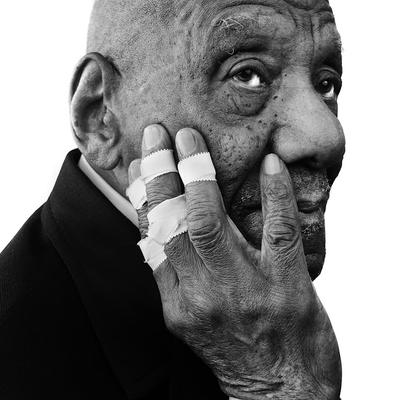Candido Camero Guierra (22 April 1921-07 November 2020), also known as Candido, is a Cuban conga player and bongo player. He is regarded as a pioneer in Afro-Cuban jazz, and a pioneer in conga drumming. He was instrumental in the creation of tuneable conga sets and the use of bongos and congas, along with other instruments like the foot-operated cowbell. Camero moved to New York in 1946 and played with Dizzy Gilespie, Billy Taylor, and Stan Kenton. He also recorded many albums as a leader starting in 1956. His disco recordings for Salsoul in 1979 were his greatest success. He performed until the end of 2010, recording numerous albums for Chesky Records. These included Inolvidable with Graciela. This album earned him a nomination at The 47th Annual Grammy Awards. Candido Camero Guerra was born in San Antonio de los Banos, near Havana, to Caridad Guerra and Candido Camero. At the age of four, his interest in music was sparked by the instruction given him by his maternal uncle Andres (a bongosero for Septeto Segundo Nacional). He moved to Cerro with his family at a young age. Camero learned to play the Cuban guitar tres from his father. He learned to play the tres and also percussion, including bongo and conga. Camero started playing tres professionally at 14 years old for several son ensembles, including Sonora Pinon, Gloria Habanera and Conjunto Segundo de Arsenio Rodriguez, Arsenio’s backing band. Camero was inspired by Arsenio and his conjunto to make conga drums more popular. He could not read sheet music so he switched to the conga. However, he recorded with other percussion instruments, including the bongo. Camero was a conguero and bongosero at the Cuba radio station for six years and the Tropicana club for six years. He was also a tresero and a member Chano Pozo’s Conjunto Azul. There he met Mongo Santamaria who played bongos. After arriving on a tour, he moved to New York City in 1946. In 1946, he was part of the Cuban dance troupe Carmen and Rolando when he performed his first New York performance in Tidbits at Broadway’s Plymouth Theatre. Camero was the first to play two conga drums at the Tidbits show. Traditionally, conga music and rumba only allow drummers to play one conga. Camero later increased the number of congas from one to two and combined them with other instruments like the bongo. He also invented a foot-operated cowbell. These inventions were further developed by Latin Percussion and Carlos “Patato” Valdes, who later created the tuneable congas we use today. He recorded his first US recording in 1948 with Machito and His Afro-Cubans, the tune “El Rey del Mambo”, however he didn’t become a member of that band as they had Carlos Vidal Bolado playing congas. After Chano Pozo’s murder in 1948, he arrived in New York just after Candido. Dizzy Gillespie reached out to Camero and began a productive collaboration that culminated with the 1954 recording of Afro. Camero was also part of the Billy Taylor Trio and recorded with them in 1953-54. In 1954, he also recorded and performed with Stan Kenton. Camero was one of the most well-known congueros in America, appearing on shows like The Jackie Gleason Show or The Ed Sullivan Show. Camero was a leader on ABC-Paramount’s late 1950s and early 60s albums. He recorded in the 1970s for Blue Note Records, an independent jazz label, before moving to Salsoul, a dance music record label. Camero was a member of the Conga Kings, and recorded two albums with the latter. These albums were a success and are still in rotation by US DJs. Camero was also a member, along with Patato Hidalgo and Giovanni Hidalgo, of the Conga Kings in the 2000s. Two albums were recorded for Chesky. He also recorded Inolvidable in 2004 with Graciela (the long-standing lead singer for Machito). This album was nominated for a Grammy Award. Camero’s last album, The Master was recorded in 2014 for Chesky. Camero continued to play in New York’s jazz clubs until the end of 2010. Camero passed away at his New York home on the 7th of November 2020. He was 99. Camero’s Inolvidable album was nominated in 2004 for the Grammy Award for Best Tropical Latin Album. In 2008, he was awarded the National Endowment for the Arts Jazz Masters Award. The following year, he was awarded the Latin Grammy Lifetime Achievement Award. From Wikipedia: In 2006, a documentary on Camero entitled Candido: Hands of Fire appeared.
